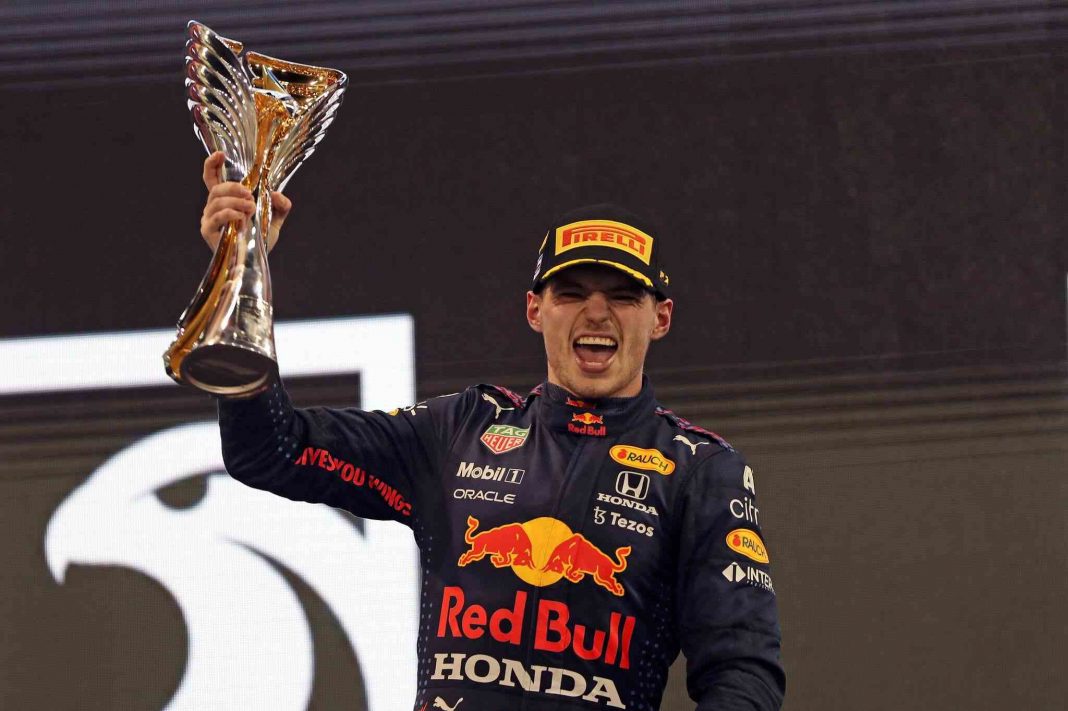Max Verstappen won the Formula One World Championship for the first time on Sunday, after a last-lap overtaking of his opponent Lewis Hamilton in the Abu Dhabi Grand Prix sealed the championship for the Dutchman.
However, a late accident at the rear of the field prompted the deployment of the safety car, which forced the field to slow down and allow the track to be cleared. When the race resumed, it effectively ended Hamilton’s lead and set up a one-lap shootout between him and Verstappen.
Verstappen was able to close the gap on Hamilton, who was on fresher tyres, before passing him on the inside of Turn 5’s hairpin turn. He raced away from the field by two seconds to win the race and seal the title by eight points.
Verstappen, 24, is the first Dutch Formula One winner in the sport’s history. His battle with Hamilton, 36, has been one of the most spectacular in recent Formula One history, with many wrecks and close on-track clashes between the two drivers throughout the course of the season. It is the closest championship finish since 2012, when Sebastian Vettel of Red Bull edged out Fernando Alonso of Ferrari by three points in the last race.
Mercedes filed a complaint against the race result, claiming that the race director had not followed his own rules by starting the race late and that the result should have been taken from the last lap, during which Hamilton was in the lead.
The team filed two objections, both of which were rejected by the stewards on the day in question. Mercedes has 96 hours to ponder whether or not to appeal the decision.
Hamilton’s four-year championship winning run came to an end with Verstappen’s triumph. Hamilton praised his competitor and hailed his Mercedes team for performing a “great job” over what he described as “the most challenging of seasons.”
The Formula One season came to a close with the Abu Dhabi Grand Prix. The epidemic prompted several long-running events to be cancelled; nonetheless, the racing series hurried to establish new ones as a result of the situation. When the checkered flag was raised on Sunday, it signalled the end of Formula One’s longest season to date.
The Formula One season came to a close with the Abu Dhabi Grand Prix. The epidemic prompted several long-running events to be cancelled; nonetheless, the racing series hurried to establish new ones as a result of the situation. When the checkered flag was raised on Sunday, it signalled the end of Formula One’s longest season to date.
The record schedule, which increased from 21 races in 2019 to 24 races in 2020, was welcome news for Formula 1, which was still reeling from the effects of the coronavirus outbreak. When compared to the same time last year, revenue increased by 12 percent in the third quarter, but the lengthier season has taken a toll on the players and the clubs themselves. Workers had resigned, according to the Haas team, because of the increased effort and continual travel.
Günther Steiner, team principal of Haas, said that a small number of his employees were departing to pursue opportunities outside of Formula 1. He attributed this to the expanding schedule of events.
Teams are taking efforts to lessen the pressure on one another. Many organisations allow individuals to skip a few races in order to keep fresher throughout the season. The majority of teams provide cash incentives for working an increased number of races, while some arrange more comfortable lodgings at the conclusion of a lengthy journey.
It is also possible that the expansion will not end after 23 races. Qatar and China have signed contracts to each host a race beginning in 2023, resulting in a 25-race calendar, which is the maximum allowed under Formula One’s rules.
Franz Tost, the team principal of AlphaTauri, was concerned that the saturation of races would be too much for viewers, resulting in some of them losing interest in the sport.
Kimi Raikkonen of Alfa Romeo has announced his retirement from Formula One, after a 20-year career in the sport. When he made his debut in 2001, there were just 17 events on the schedule, with the bulk of them taking place in Europe. He did not complete the race on Sunday.
Raikkonen, 42, said that the increasing demands of his schedule had no role in his decision to retire. However, he cautioned against overestimating the effect it will have on people involved in Formula 1.
According to him, “they are working long days, particularly if there are problems with the automobiles.” He said that they worked through the night for the race in Mexico. “It’s difficult for them,” he said.
“The issue will burn out a lot of individuals,” Raikkonen predicted, “and it will be detrimental to everyone.”

